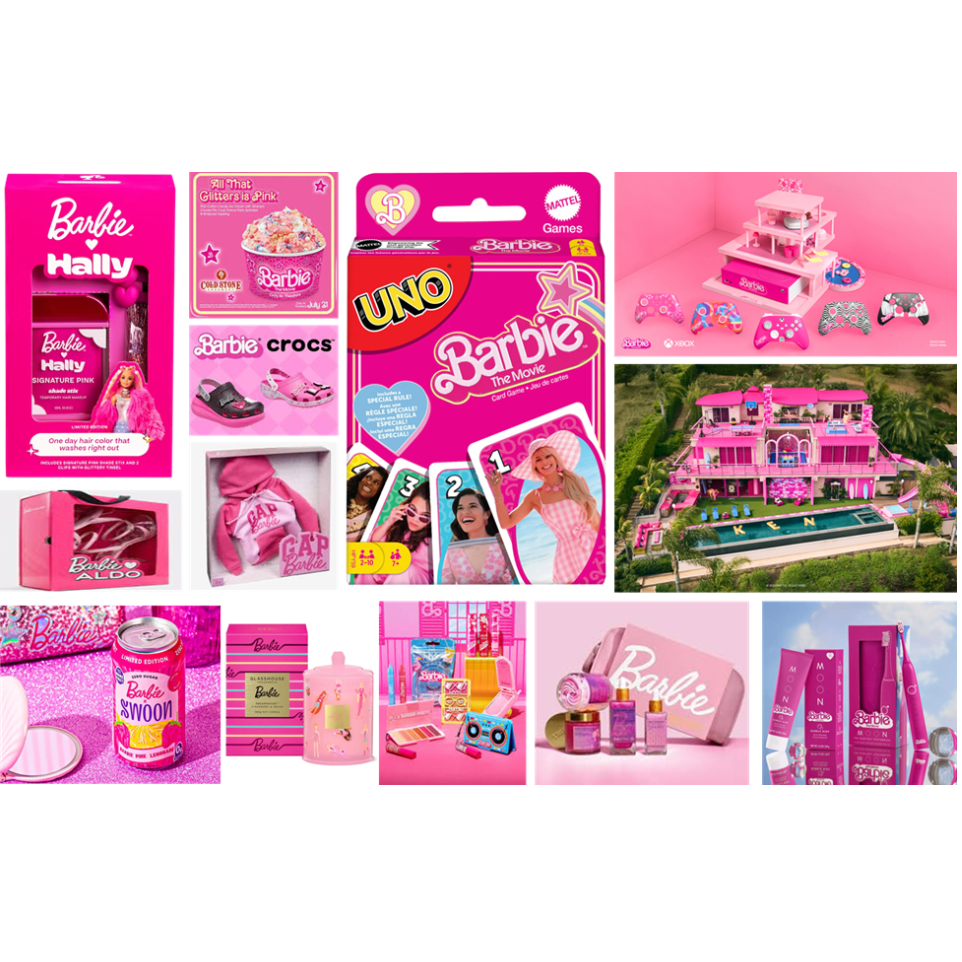Can We Replicate Barbie's Marketing Magic?

One thing we can all agree on: The Barbie marketing campaign connected to the movie launch has been jaw-droppingly good. Over 30 activations have been meticulously orchestrated, ranging from branded skates to a life-sized Malibu dollhouse. Even Google has gotten in on the action, unveiling an easter egg that triggers a flurry of pink starbursts when people search for "Barbie," the film's director Greta Gerwig, or its stars, Margot Robbie or Ryan Gosling. The teams involved with marketing the movie have a lot of awards coming their way. And, of course, many brands and agencies will want to replicate these incredible results.
The movie's creation was a lavish affair, with a whopping $150 million poured into its production and an estimated additional $100 million invested in marketing. Even with that kind of money, Barbie also had the benefit of history on its side. Barbieis more than a movie based on a toy. She's a cultural icon that’s been in the market for decades. Her name alone sparks a myriad of emotions and memories, regardless of one's age. The campaign leverages decades of intellectual property and brand resonance.
In fact, one specific placement spoke to how universal Barbie and all her assets are: an enigmatic pink billboard in London with nothing more than the movie’s release date. There was some debate in the ad world as to whether this was creative confidence or presumption. Color alone can’t always convene meaning, but in this case – especially in conjunction with all the other Barbie marketing in rotation – it was likely obvious what the billboard was for.
That was the other key to the campaign. It was supported by numerous partnerships across various industries. Auto, fashion, makeup, food, design, home improvement and more.
Being involved with such a marketing juggernaut can be exciting, but there are a few things to consider:
- Distinctive brand assets, like logos and colors, are the heartbeat of brand growth. Most people don’t care about your advertising, so you’d better make it distinctive enough to make an impact and well-branded enough, so people remember who it’s from (Ehrenberg-Bass Institute study, quoted in ‘How Brands Grow’ by Byron Sharp). While Barbie partnerships brilliantly spotlight the Barbie brand, smaller brands can be overshadowed in this pink sea. When partnering with a larger brand, ensure your voice isn't drowned out.
- Marketing wisdom states that fame fuels long-term growth. While partnerships can offer momentary limelight, this fame is fleeting and fades with the news cycle. Smaller brands might benefit more from investing in lasting brand fame.
- Collaborations, akin to intricate dances, demand effort and commitment. Larger brands often charge hefty fees and set strict rules. Successful partnerships hinge on mutual accountability, shared goals, clear expectations, and fair rewards.
But if you’re looking to replicate this magic, there are also some basic tenets to Barbie’ssuccessful campaign:
- Know your audience like the back of your hand. Understand their desires, their necessities and their passions.
- Weave a captivating narrative that echoes your mission, not merely the products you offer.
- Align your brand with cultural currents that reverberate with your audience and narrate this story with unwavering consistency across all your endeavors.
Mattel itself will attempt to replicate its own Barbie magic. With a children's entertainment catalogue surpassed only by Disney, Mattel is poised to follow in Marvel's footsteps, transforming from a traditional toy manufacturer into a Hollywood titan leveraging its vast IP. The brands, and audiences' familiarity with them, are a unique form of currency.
As Robbie Brenner, Executive Producer at Mattel Films, told The New Yorker, "In the world we're living in, IP is king. Pre-awareness is so important."
Margot Robbie has recently said “There are people who adore Barbie, people who hate Barbie—but the bottom line is everyone knows Barbie.” The film’s slogan is, “If you love Barbie, this movie is for you. If you hate Barbie, this movie is for you.”
In addition to Barbie, Mattel has now publicly announced thirteen more films; 45 are in the pipeline.
With its box-office take now surpassing $1 billion, the Barbie movie has crowned itself as one the year's biggest cinematic sensations. And it’s doubtful any forthcoming film will manage to match Barbie's pre-release marketing triumph in the near term.
But pre-awareness alone isn’t enough to make a cultural phenomenon. For every Barbie or Lego, there’s a dud like Battleship. Huge wins still require smart marketing, proper budgeting, and the right partners. And a little bit of luck and over 60 years of brand recognition also might help.
Diego Cerrone is Managing Partner, Global Strategy Lead at GroupM’s EssenceMediacom
Posted at MediaVillage through the Thought Leadership self-publishing platform.
Click the social buttons to share this story with colleagues and friends.
The opinions expressed here are the author's views and do not necessarily represent the views of MediaVillage.org/MyersBizNet.


